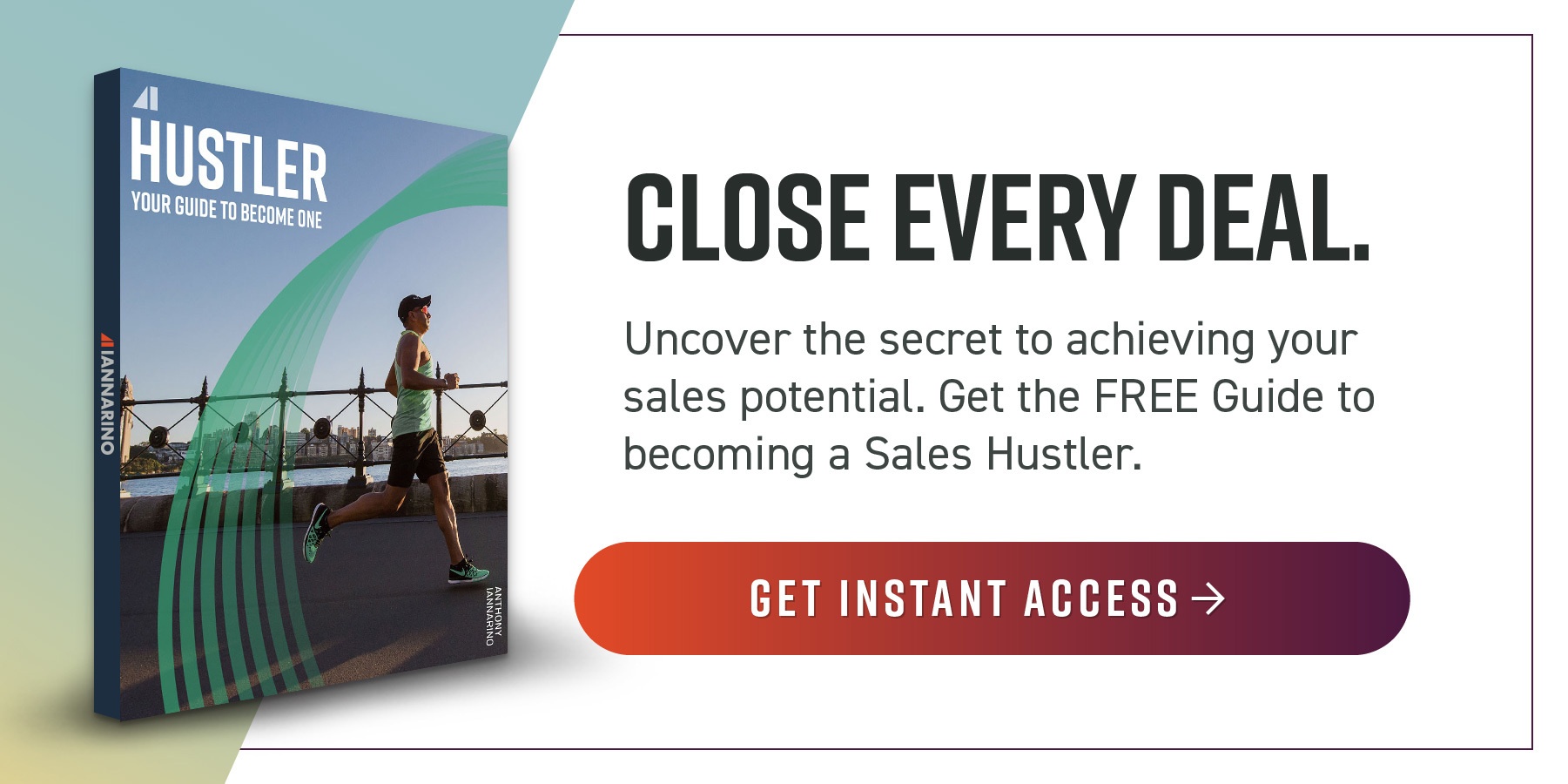This question is often posed: Who are the best salespeople? The answer is salespeople who are One-Up. If you want to improve your sales results or those of your team, it's important to understand what One-Up means. But we before we explain, we need to define One-Up.
One-Up: a salesperson with superior knowledge and experience, and who provides clients with insight and perspective to shape their decisions and ensure they improve their results. The One-Up salesperson is truly consultative, offering their counsel, advice, and recommendations.
This approach is what makes One-Up salespeople the best salespeople. To understand how and why this is true, we need to understand what One-Up salespeople do differently. We also need to look at why clients buy from salespeople who provide a certain kind of help.
What Makes One-Up Salespeople the Best
The One-Up salesperson doesn't approach the sales conversation as others do. They strip out anything that doesn't create value for their clients. They don't try to gain rapport. Nor do they talk about their company or their other clients. You will not find a One-Up salesperson trying to position their solution so it aligns with a client’s problem. In fact, a One-Up salesperson already knows all about their prospective clients’ problems, so they don’t need to ask for an explanation. Because these conversations waste time, the One-Up salesperson removes and replaces them with something more valuable.
Removing time-wasting monologues is enough to make the One-Up salesperson the best salesperson in their client's eyes. Instead of wasting time, the best salespeople get straight to work creating value for their contacts.
Many people talk about creating value, but few define it. For our purposes, creating value means leading a conversation that benefits the client and improves their decision-making and their future results. Taking this approach at the beginning of the conversation means providing insights that help the client understand their environment. By using something like an executive briefing, the One-Up salesperson begins by explaining what's changed and how that contributes to the client’s undesirable results.
By providing insights, the salesperson helps their contacts recognize the need to change. Additionally, the One-Up salesperson creates a paradigm shift, helping their client break with their past.
While the One-Down salesperson works on trying to make their prospects believe their company and their solution creates value for the client. The mistake they make is believing the legacy conversations are helpful for their contacts. They are not.
Why Clients Buy from One-Up Salespeople
How do you know a salesperson is one of the best? I suggest looking at their quota attainment and their win rates. One-Up salespeople are at the top of the stacked ranking. Let's look at this through the client's eyes.
Imagine you are a decision-maker. You are having a tough time improving some important outcome. The one thing you know is that you don't know what you don't know. You worry that a bad decision means even worse results. Your uncertainty has immobilized you, but you recognize you need to act—and soon. What kind of help would you want from a salesperson?
- Because the client doesn't know what they don't know, they find it valuable to be provided with information and insights that pertain to the better results they need.
- When a One-Up salesperson helps explain the changes in the environment that— harm your business—or soon will—, that conversation is a winner.
- Because the decision maker is facing a decision they haven’t made before, they find it helpful to work from an updated set of assumptions. This provides a greater sense of confidence.
- The One-Up salesperson who provides a roadmap for the client's buyer's journey creates a sense of certainty that the company and its stakeholders can make a change. This includes the challenge of building consensus within their company.
The salesperson who creates the greatest value in the sales conversation will look and feel like the best salesperson—because they are.
Why Clients Don't Buy from One-Down Salespeople
The opposite of value is anti-value. The only thing it creates is wasted time. Here is a list of what prevents success—for salespeople and their clients:
- Excessive rapport-building: If you win a client’s business, someday you might be friends, but at the beginning of the conversation, that’s not what your client needs or wants.
- Your company history: No one signed up for a course on the history of your company. The only company your client wants to discuss is their own.
- Your products and your services: I know you want to inflate these things into a “solution,” but doing that is anti-value.
- Your trophy case: People love to look at a slide filled with big company logos. I'm kidding, no one cares. It's anti-value and will ensure you are not the best salesperson. This is like showing someone you are dating a photo album of your exes.
- Asking the client about their problem: When you don't already know what problems your clients have and why they have them, you are One-Down. Unless it is your third day on the job, it reduces your status.
- Poor differentiation strategies: Explaining why your company is the best company in the industry and how your solution far superior to any alternative anywhere on Earth may cause your client to chuckle. It's too incredible to believe.
The best salespeople are One-Up. The ability to create value in the only way possible is to create value in the sales conversation. Becoming One-Up requires you to learn what you need so you can fill gaps in your prospects’ knowledge. Then, you must be able to transfer your experience to your decision-making contacts. The path to being One-Up isn't easy, but if you work hard at learning, you can accelerate the process.














